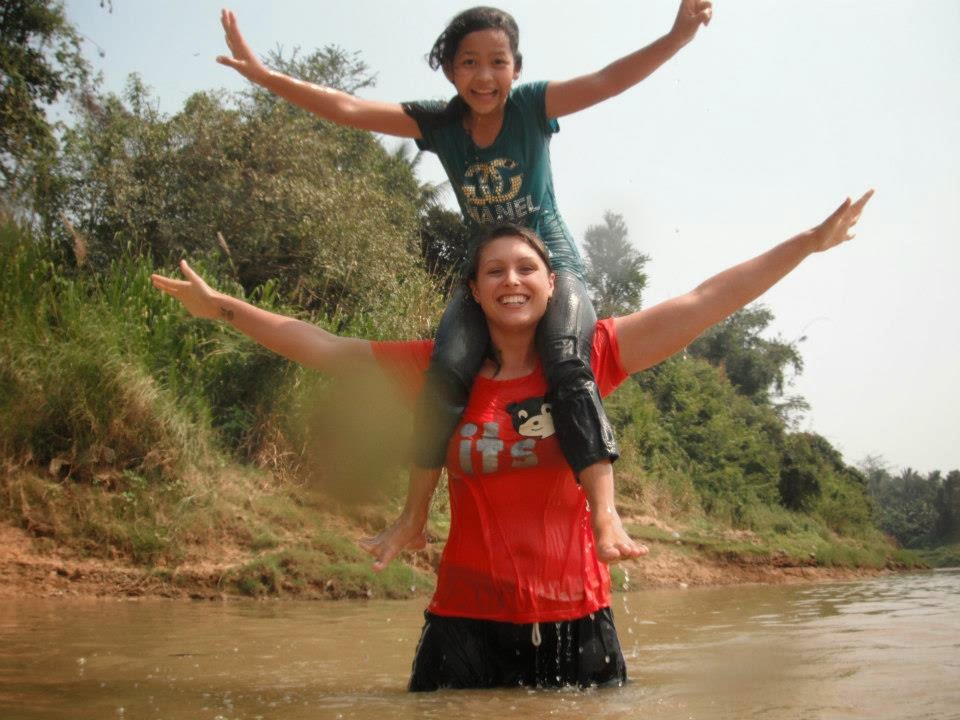A year from now we'll all be gone
All our friends will move away
And they're going to better places
But our friends will be gone away
I received my invitation to Peace Corps Cambodia the day I graduated from college. Already I was at a crossroads in my life, with friends graduating and moving and considering my own next home, knowing only that it would not be back in Indiana. A few weeks before my flight, Jessie, Steph, and I attended a concert in Millennium Park where I first heard The Head and The Heart play Rivers and Roads. The refrain echoed on and on with tears welling in my eyes, standing next to two amazing people and thinking of all the others in my life and how we were spreading not just across the nation but across the world…. Rivers and roads….rivers and roads till I reach you….
Sitting alone in OHare and waiting for my flight, I put that same song on repeat as I read through letters from friends filled with words of love and well-wishing and the promises not to drift apart. Life is not static, though, and goodbyes are inevitable. With hope and hard work those goodbyes are not eternal, but, even when they are, the people on our journeys are an integral part of shaping the path ahead of us. Sometimes our paths converge again, and I rejoice when they do, but I know that my loved ones have their own paths to follow to their own better places. And this is the path I must take.
Nothing is as it has been
And I miss your face like Hell
And I guess it's just as well
But I miss your face like Hell
You all are living your own best lives, and I am so proud and in awe of each and every one of you: whether raising the next generation of fabulous individuals, serving in your dream job, and/or still figuring yourself and your path out. Whether you know it or not – whether you intend to or not - all of you are changing the world around you for the better. With the world seeming to crumble around us, my heart is lightened being reminded of those of you in my life and knowing that goodness and love prevails in people.
It is just as well. But, god, I miss your face like hell.
Been talking 'bout the way things change
And my family lives in a different state
And if you don't know what to make of this
Then we will not relate
So if you don't know what to make of this
Then we will not relate
While I was preparing to leave for what should have been just two years of service with Peace Corps, my mom commented that she felt like she was saying goodbye forever and that I would not return.
I know you sometimes feel I abandoned you – sometimes I feel that way myself – but please know that I left a piece of my heart with you and there it will remain.
Rivers and roads can create a chasm of loneliness. Whether it’s remembering those on the path behind us or saying goodbye to someone taking a different fork ahead of us, whether that person is family or friend, distance is a tangible ache.
Rivers and roads
Rivers and roads
Rivers 'til I reach you
But over rivers and roads, I’m also converging paths with new people. Even more, I’m learning to love and learn across the rivers and roads of culture and language and I hope creating a bridge for others to do the same.
We cannot explore new roads without first leaving our current ones and crossing those rivers to new adventures and new people to know and to love.
Rivers and roads
Oh rivers and roads
Oh rivers 'til I reach you
I’ve been so privileged to live in a world where rivers and roads are not eternal barriers as technology connects us all. I’m sorry to everyone with whom I have not maintained a strong enough bridge through time and space. Know that you are missed.
Rivers and roads
Rivers and roads
Rivers 'til I reach you



































